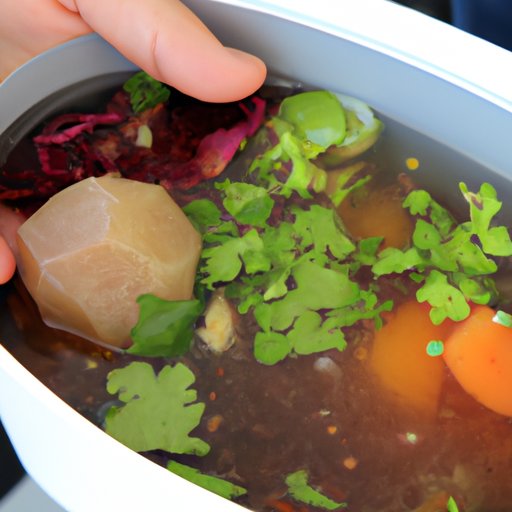Understanding TCS Foods: Identifying and Avoiding Health Risks
As we explore the world of food, it is crucial to understand the health risks associated with certain types of foods. One such category of food is called TCS food. In this article, we will dive deep into identifying TCS foods, the health hazards associated with them, and ways to protect ourselves from food-borne illnesses.
What are TCS foods?
TCS stands for Time/Temperature Control for Safety. TCS foods are those that require precise temperature control to prevent the growth of dangerous bacteria. These bacteria thrive in environments where food is left in the temperature range of 41–135°F (5–57°C) for more than 4 hours.
TCS foods have a higher risk of causing food-borne illness, making it critical to handle and cook them correctly. These foods may include dairy products, meat, eggs, seafood, and even cooked pasta or rice.
Examples of TCS foods
Some commonly known TCS foods include:
- Raw and cooked meat, poultry and fish
- Dairy products like milk, cheese, and yogurt
- Eggs and egg products
- Cooked rice, pasta, and potatoes
- Sprouts such as alfalfa and bean sprouts
- Cut melons, cut tomatoes, and cut leafy greens
These foods pose a higher risk of contamination and can cause severe health problems.
Health risks of TCS foods
TCS foods are the most common cause of food-borne illness, which can lead to severe health complications or even death in severe cases. Bacteria like Salmonella, Listeria, and E.coli thrive in warm environments, so it is crucial to handle these foods with great care.
How TCS foods become contaminated
Bacteria can contaminate TCS foods in multiple ways, such as:
- From an infected animal or insect during the growth process
- Spreading from raw meat to other food through direct contact
- Improper refrigeration or storage after cooking
- Cross-contamination during preparation and cooking
Common health risks associated with TCS foods
Consuming contaminated TCS foods can lead to severe food poisoning or food-borne illness, causing:
- Vomiting and diarrhea
- Abdominal pain
- High fever
- Dehydration
- Nausea
In severe cases, food-borne illnesses can cause organ failure or even death.
How to protect yourself from TCS food-related illnesses
Here are some essential tips to help prevent food-borne illnesses:
- Cook foods like meat and eggs correctly by using a thermometer to check the internal temperature
- Store TCS foods at correct temperatures to prevent the growth of harmful bacteria
- Do not cross-contaminate by using the same cutting board or utensils for raw and cooked foods
- Wash your hands, utensils, and countertop before and after food preparation
- Check expiration dates and use-by dates on TCS foods when purchasing at the grocery store
Regulations and inspections
The government’s food safety agencies regulate TCS foods to limit health hazards and protect consumers. Regulators enforce food sanitation and hygiene measures that keep food safe both in production and throughout the supply chain.
The importance of inspections
Inspections are the primary way to ensure the food we eat is safe and healthy. Food safety inspectors examine food production and retail facilities to ensure they meet federal, state, and local regulations. They observe food services throughout the production, preparation, and service processes for health hazards.
The consequences of non-compliance
The consequences for non-compliance with food safety regulations are severe. For U.S. and Canadian food facilities, non-compliance can lead to penalties, restrictions, or even closings. In some cases, facilities may even face criminal charges for knowingly endangering public health.
Conclusion
TCS foods pose a greater risk of food-borne illness and should be handled with more attention to safety and hygiene. Take necessary preventive measures, like thorough cleaning, proper cooking, and storage, and abide by regulations and inspections to mitigate these hazards. Eating healthy food shouldn’t come at the cost of our well-being, and by being informed, we can make the best choices for our health.
Call-to-action
Share this article with others and spread awareness about TCS foods and the risks associated with them. By doing so, we can make informed choices and protect our health safety.
